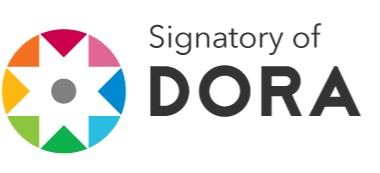Privatization and commodification of water: Reflection on a common good
DOI:
https://doi.org/10.36436/24223484.299Keywords:
Agua, privatización, política hídrica, mercantilización, planificación hídrica (Fuente, DeCS).Abstract
Conceived as an economic resource by supranational institutions such as the World Bank and the World Water Council, this problem has a global scope. The consideration under which this document is prepared aims to reflect on the processes of privatization and commodification of nature, dealing in this particular case with the element of water. This process is structural and must be analyzed from a multi-scale and multi-dimensional perspective. Multi-scale because these processes stem from initiatives by different international institutions (UN, World Bank, World Water Council, WTO, etc.), materializing through the implementation of reforms at the state level in different countries around the world and ultimately having concrete expression at the internal level in the different regions and territories of each country, negatively impacting the territories and the communities located therein.Downloads
References
Bakker K. Neoliberazing nature? Market environmentalism in water Supply in England and Wales. Annals of the Association of American Geographers 2005; 95 (3):542-565.
Cesano, D., Gustafsson J. Impact of economic globalization on water resources: A source of technical, social and environmental challenges for the next decade. Water Policy, 2000;2, 213–227.
Banco Mundial. 2010. El Banco Mundial en América Latina y el Caribe. Un socio global para una región que progresa. Washington, D.C., United States. Consultado en Junio de 2016. Disponible en: http://siteresources.worldbank.org/INTLAC/Resources/LCR_RefGd_Spa.pdf
World Water Council. 2012. Global Water Framework. Draft Forum Synthesis. Time for Solutions. Marsella, France. Consultado en Junio de 2016. Disponible en: http://www.worldwaterforum6.org/fileadmin/user_upload/pdf/publications_elem/publications_global-water-framework_28-08-2012.pdf
Haughton G. Market making: internationalization and global water markets. Environment and Planning A. 2002; 34:791–807.
Laurie N., Marvin S. Globalization, neoliberalism, and negotiated development in the Andes: water projects and regional identity in Cochabamba, Bolivia. Environment and Planning A. 1999; 31:1401-1415.
Hardin G. La tragedia de los comunes. Gaceta Ecológica 1995; 37.Traducción de Horacio Bonfil Sánchez. Instituto Nacional de Ecología, México.
Vega C.R. Los economistas neoliberales nuevos criminales de guerra: el genocidio económico y social del capitalismo contemporáneo.Ed. Centro Bolivariano 2005. Caracas, Venezuela.
Hanemann W.M. The Economic conception of water. En: Rogers P., et al (edt). 2006. Water Crisis: Myth or reality? Taylor and Francis, London, UK.
Vega C.R. Neoliberalismo y biodiversidad. En Neoliberalismo: Mito y Realidad. Ed. Pensamiento crítico, 2001. Bogotá, Colombia.
Buonomo M., et al. Ecología y la conservación en la “economía verde”: una revisión crítica. En: Delgado R. Gian Carlo (coord.). Economía Verde, apuesta de continuidad del desarrollo desigual y el abuso de los bienes comunes. RUTH Casa Editorial 2013. La Habana y Panamá.
Ambrosano L. Los Pagos por Servicios Ambientales como propuesta de privatización. América Latina en Movimiento, Septiembre-Octubre 2011, año XXXV;27-29.
C.M.A. Una nueva política del agua. Plan estratégico Consejo Mundial del Agua. 2010; 2010-2012, Marsella, Francia.
Departamento Nacional de Planeación. 2005. Visión Colombia II centenario: 2019. Propuesta para discusión, Bogotá: Ed. Planeta Colombiana S.A.
Downloads
Published
How to Cite
Issue
Section
License
Copyright (c) 2016 Revista Ciencias Agropecuarias

This work is licensed under a Creative Commons Attribution-NonCommercial-NoDerivatives 4.0 International License.







